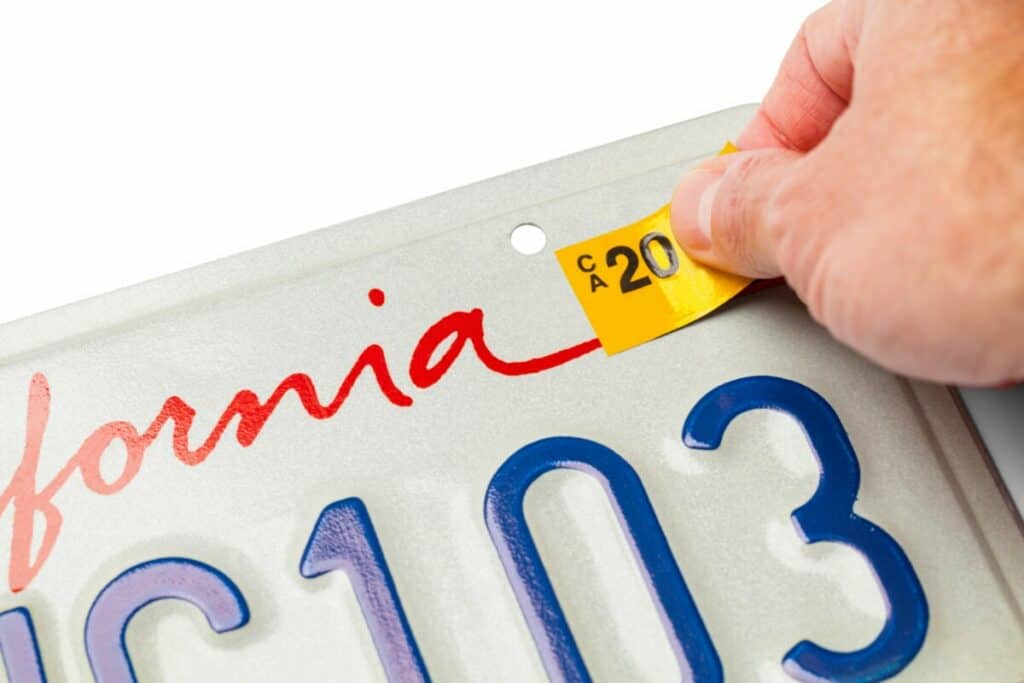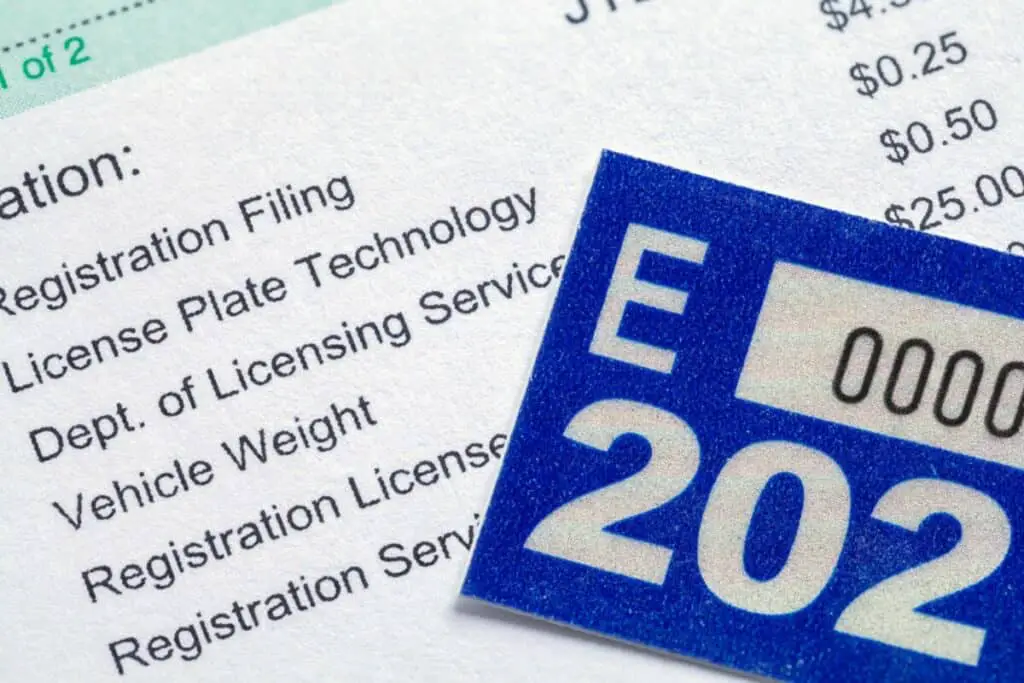
Every car owner has to go through the process of renewing their registration. When you have renewed your registration, you may find yourself wondering what you should do with the expired registration.
Expired registration is not legally needed in the car so it can be disposed of. When a vehicle’s registration is expired, the most common solution is to cover the old license plate registration stickers with new ones and properly dispose of the paperwork by making private information illegible.
Going forward, we’ll talk more in depth about how to get rid of old tags and paperwork as well as some tips, tricks, and information that will help you in the process of renewing your vehicle registration. You may be worrying if you can throw away your old paperwork, or if you’ll need it in the future. Well worry no more, we will answer all of your expired registration questions, all you have to do is keep reading.
Your options
The first thing you should do if your vehicle registration has expired is to renew it. Ideally, you should do this prior to it expiring because it is illegal to have an expired registration. There are no clear laws stating whether or not it is necessary to either dispose of or keep the registration paperwork but there are a few options depending on what you want to do.
While the expired paperwork is not needed legally, you might want to hold on to it for a bit. For example, if you need to show proof of residency, your expired vehicle registration can be used to show how long you have lived in the state. Saving expired paperwork may also help if you don’t have your new tabs yet. It is illegal to drive a vehicle with expired tabs, but an officer may be more lenient if you have proof that your tabs are only a few days expired.
Disposal
For your actual registration stickers, there is no law stating that you have to dispose of them. In fact, it is the most common practice to just place your new sticker right on top of the old one on the back license plate.
However, for your old registration papers that are typically kept in the glove box, there is a different procedure. There are no requirements for this paperwork as well so really it is up to you what to do with it. Most people throw away these documents because they no longer serve a purpose and it can be confusing to have two.
The one and only time I got pulled over, I had my old registration in the glovebox along with my current one and I accidentally handed gave the old registration to the officer. Luckily he could tell I was flustered and came back to ask if I had a current one.
Because this is your vehicle registration form has personal identifying information on it like your full name and home address, it is highly recommended that you either use a paper shredder to destroy it, tear it up or find a way to cover up the important information. For example, you can cover up the details you don’t want shared with a dark marker.
Any one of these options would work, but the true key is to make sure that your personal information is not readable. This is vital because if someone were to get ahold of it you could become a victim of fraud or identity theft.

Laws
Before getting into the different laws it is of the utmost importance that you understand that vehicle registration laws are decided at the state level, so each one will be different. If you plan on moving around the same time that your registration will expire you should look into that state’s laws for this matter as well as your current state’s laws.
The first law to be aware of regarding car registration is that it is illegal to be driving at all if it is expired. In any and every state, driving with expired registration gives officers the responsibility to pull you over and possibly give you a ticket.
Even further than this, some states will fine you if you let it expire at all, even if you aren’t driving the car. This falls under the category of a “non-moving violation” because you do not have to be driving to receive this fine. For example, if your car is parked and an officer sees the expired tags you may still be fined.
While this law applies to all states, the penalty, fines, and even grace period vary from state to state. It is definitely important to be aware of your state’s laws on this matter so that you don’t have any confusion that accidentally results in a fine or something worse.
Renewal Requirements
What you need to renew your registration will also depend on the state you live in and your personal circumstances.
While you may need to bring in extra documentation or information depending on the state that you are registering the vehicle in, the following documents are generally needed:
- valid driver’s license
- social security number
- proof of address or residency
- vehicle identification number
- make, model and year of the vehicle
You will also need to pay the applicable registration fees before you will get your new tags.

Renewal Information
One good thing to be aware of prior to renewing your registration is how expensive it will be. The cost of renewing your car registration depends on a variety of things including your state of residence, how old the car is, and the type of car that it is. All states have different fees and also different ways by which they determine the fee.
The state with the highest registration fee is Oregon, it averages between $268 and $636 for new vehicles. The lowest fee is from Arizona which averages out to be $40 because of a $32 that the state adds. The average cost across all states is $53. If you want to know the cost for your state specifically, you can visit this site to find the different fees that you might need to pay.
A second technicality that you should know about is the state limitations for when you have to renew your car registration. In some states, car registration expires every year in some states like Arizona, your car can remain registered for up to five years if you meet certain criteria. The average time period of validity across all states is 1-2 years.
Since so many factors in renewing your registration vary from state to state, you should visit this website, which has links to the DMV website for every site so you can be aware of the rules and regulations that apply to you specifically.
Related Topics:
If you like the article above, here are some other similar articles you should check out!
What Should I Do with Old Makeup
